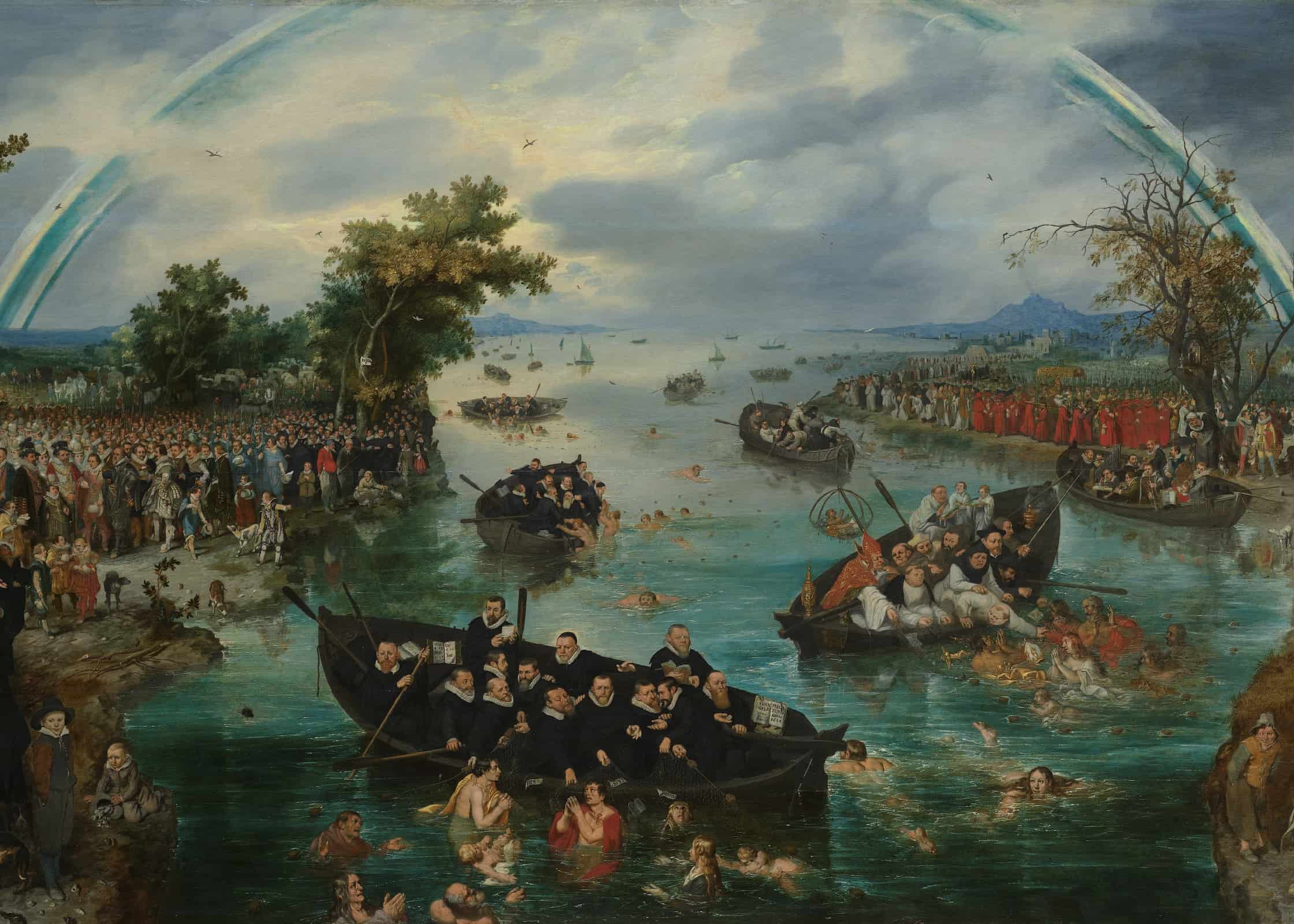
Under the New Testament Christ hath instituted in his Church only two Sacraments, Baptism and the Lord’s Supper.
Baptism is a Sacrament of the New Testament, wherein Christ hath ordained the washing with water in the name of the Father, and of the Son, and of the Holy Ghost, to be a sign and seal of ingrafting into himself, of remission of sins by his blood, and regeneration by his Spirit; of adoption, and resurrection unto everlasting life; and whereby the parties baptized are solemnly admitted into the visible Church, and enter into an open and professed engagement to be wholly and only the Lord’s.
Baptism is not to be administered to any that are out of the visible Church, and so strangers from the covenant of promise, till they profess their faith in Christ, and obedience to him; but infants descended from parents, either both or but one of them professing faith in Christ, and obedience to him, are in that respect, within the covenant, and to be baptized.
The needful but much neglected duty of improving our Baptism, is to be performed by us all our life long, especially in the time of temptation, and when we are present at the administration of it to others, by serious and thankful consideration of the nature of it, and of the ends for which Christ instituted it, the privileges and benefits conferred and sealed thereby, and our solemn vow made therein; by being humbled for our sinful defilement, our falling short of, and walking contrary to, the grace of the Baptism and our engagements; by growing up to assurance of pardon of sin, and of all other blessings sealed to us in that Sacrament; by drawing strength from the death and resurrection of Christ, into whom we are baptized, for the mortifying of sin, and quickening of grace; and by endeavoring to live by faith, to have our conversation in holiness and righteousness, as those that have therein given up their names to Christ; and to walk in brotherly love, as being baptized by the same Spirit into one body.
The Lord’s Supper is a Sacrament of the New Testament, wherein, by giving and receiving bread and wine according to the appointment of Jesus Christ, his death is shewed forth; and they that worthily communicate feed upon his body and blood, to their spiritual nourishment and growth in grace; have their union and communion with him confirmed; testify and renew their thankfulness, and engagement to God, and their mutual love and fellowship each with other, as members of the same mystical body.
Christ hath appointed the ministers of his Word, in the administration of this Sacrament of the Lord’s Supper, to set apart the bread and wine from common use, by the word of institution, thanksgiving, and prayer; to take and break the bread, and to give both the bread and the wine to the communicants: who are, by the same appointment, to take and eat the bread, and to drink the wine, in thankful remembrance that the body of Christ was broken and given, and his blood shed, for them.
The body and blood of Christ are not corporally or carnally present in, with, or under the bread and wine in the Lord’s Supper; and yet are spiritually present to the faith of the receiver, no less truly and really than the elements themselves are to their outward senses; so they that worthily communicate in the Sacrament of the Lord’s Supper, do therein feed upon the body and blood of Christ, not after a corporal or carnal, but in a spiritual manner; yet truly and really, while by faith they receive and apply unto themselves Christ crucified, and all the benefits of his death.
They that receive the Sacrament of the Lord’s Supper, are, before they come, to prepare themselves thereunto, by examining themselves of their being in Christ; of their sins and wants; of the truth and measure of their knowledge, faith, repentance, love to God and the brethren, charity to all men, forgiving those that have done them wrong; of their desires after Christ, and of their new obedience; and by renewing the exercise of these graces, by serious meditation, and fervent prayer.
One who doubteth of his being in Christ, or of his due preparation to the Sacrament of the Lord’s Supper, may have true interest in Christ, though he be not yet assured thereof; and in God’s account hath it, if he be duly affected with the apprehension of the want of it, and unfeignedly desires to be found in Christ, and to depart from iniquity: in which case (because promises are made, and this Sacrament is appointed, for the relief even of weak and doubting Christians) he is to bewail his unbelief, and labor to have his doubts resolved; and, so doing, he may and ought to come to the Lord’s Supper, that he may be further strengthened.